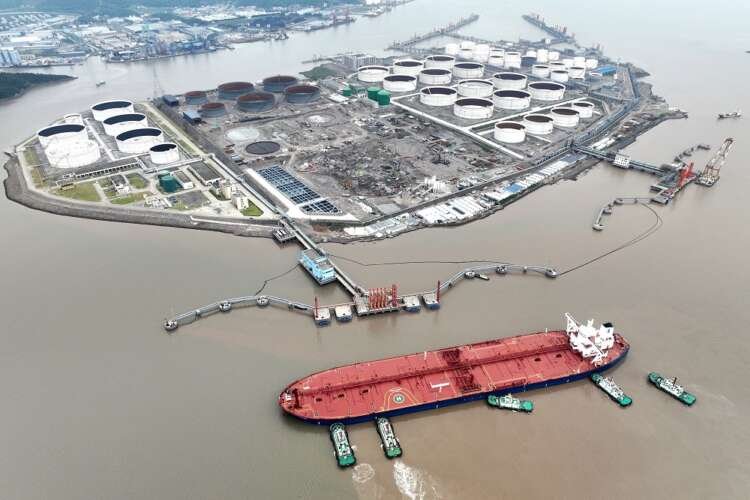Oil falls on China COVID curbs and weak factory data
Published by Jessica Weisman-Pitts
Posted on October 31, 2022
2 min readLast updated: February 3, 2026

Published by Jessica Weisman-Pitts
Posted on October 31, 2022
2 min readLast updated: February 3, 2026

By Noah Browning
LONDON (Reuters) -Oil prices fell on Monday after weaker than expected factory activity data out of China and on concerns that the country’s widening COVID-19 curbs will curtail demand.
Brent crude futures dropped 69 cents, or 0.7%, to $95.08 a barrel by 1240 GMT, extending Friday’s 1.2% decline.
U.S. West Texas Intermediate (WTI) crude was down 84 cents, or 0.9%, at $87.06 after losing 1.3% on Friday.
Both benchmarks, however, are on track for their first monthly gains since May.
Factory activity in China, the world’s largest crude importer, fell unexpectedly in October, an official survey showed on Monday, weighed down by softening global demand and strict COVID-19 restrictions that hit production.
“The purchasing managers’ index (PMI) data contracting adds to the post-China congress party blues for oil markets. It is not difficult to draw a straight line from weaker PMIs to China’s COVID-zero policy,” said Stephen Innes, managing partner of SPI Asset Management.
“So long as COVID-zero remains entrenched, it will continue to thwart oil bulls.”
Chinese cities are stepping up zero-COVID curbs as outbreaks widen, dampening hopes of a rebound in demand.
Strict COVID-19 curbs in China have hit economic and business activity, curtailing oil demand. China’s crude oil imports for the first three quarters of the year fell 4.3% year on year for the first annual decline for the period since at least 2014.
Meanwhile, the euro zone is likely to be entering recession, with its October business activity contracting at the fastest in nearly two years, a S&P Global survey said, as rising costs of living keeps consumers cautious and hurts demand.
European Central Bank policymakers are also standing behind plans to keep raising interest rates, even if it pushes the bloc into recession and stirs political resentment.
The Organization of the Petroleum Exporting Countries (OPEC) on Monday raised its forecast for medium and long-term oil demand and said $12.1 trillion of investment is needed to meet this demand despite the energy transition.
(Reporting by Noah BrowningAdditional reporting by Florence Tan and Emily ChowEditing by David Goodman)
Brent crude oil is a major trading classification of crude oil originating from the North Sea. It serves as a benchmark for oil prices globally.
West Texas Intermediate (WTI) is a grade of crude oil used as a benchmark in oil pricing. It is sourced from North America and is known for its high quality.
The Organization of the Petroleum Exporting Countries (OPEC) is a group of oil-producing countries that coordinates and unifies petroleum policies to ensure stable oil markets.
An economic recession is a significant decline in economic activity across the economy that lasts for an extended period, typically visible in GDP, income, employment, manufacturing, and retail sales.
Explore more articles in the Investing category











